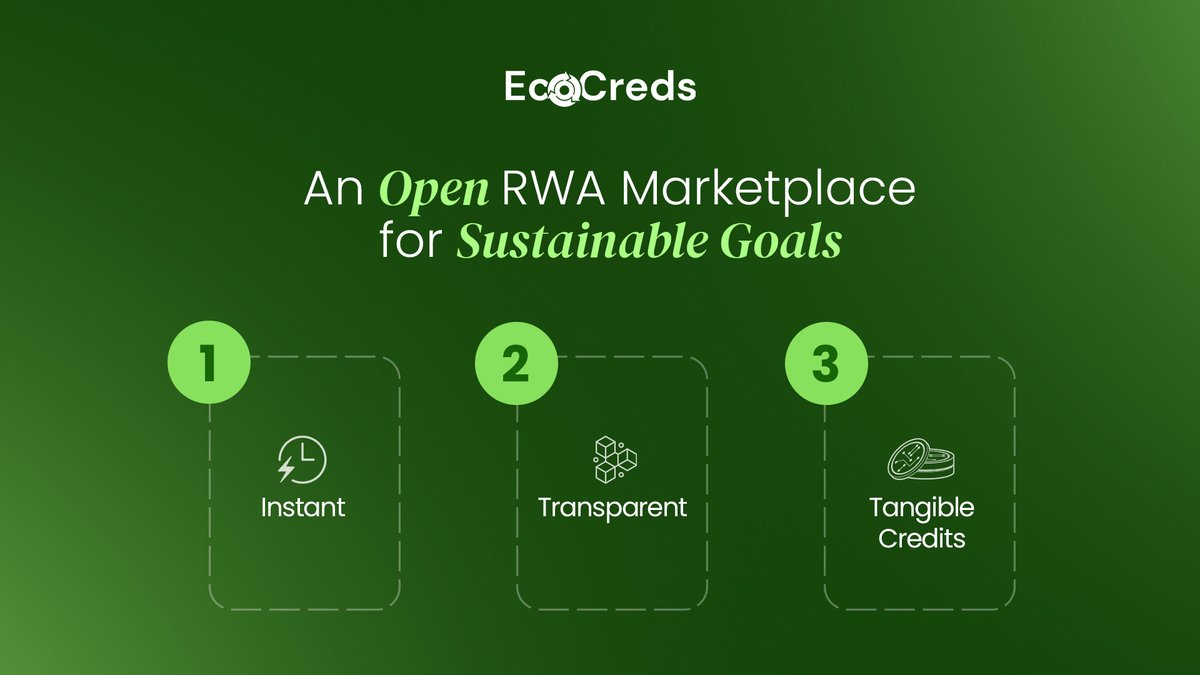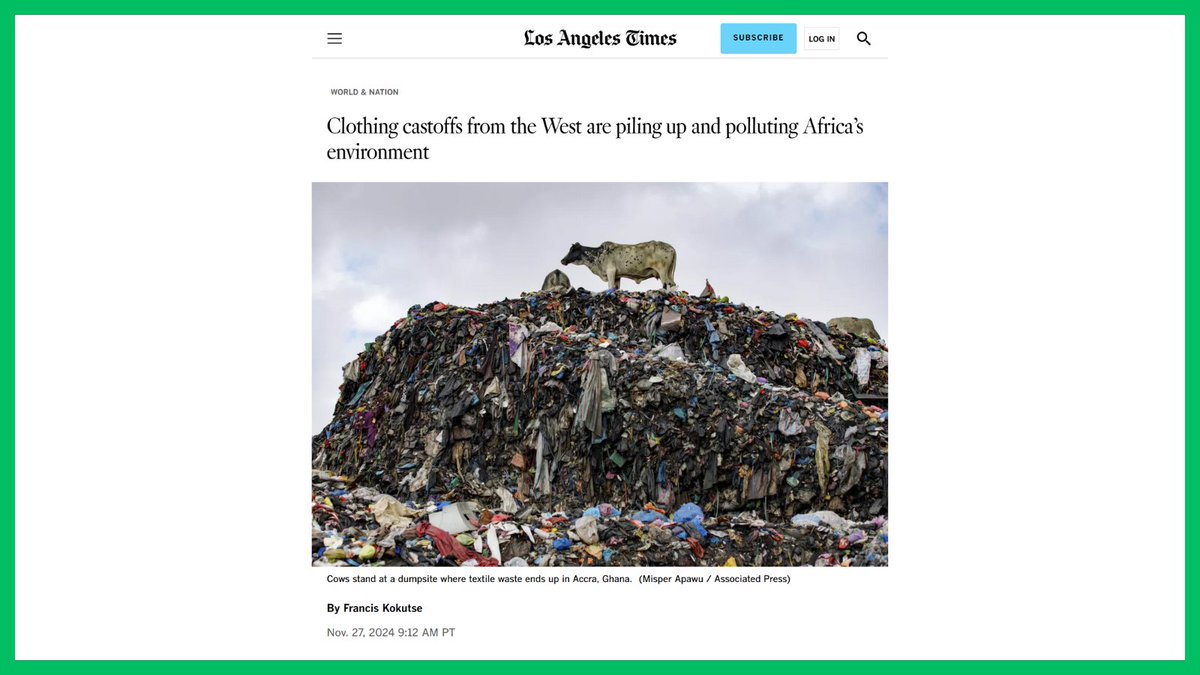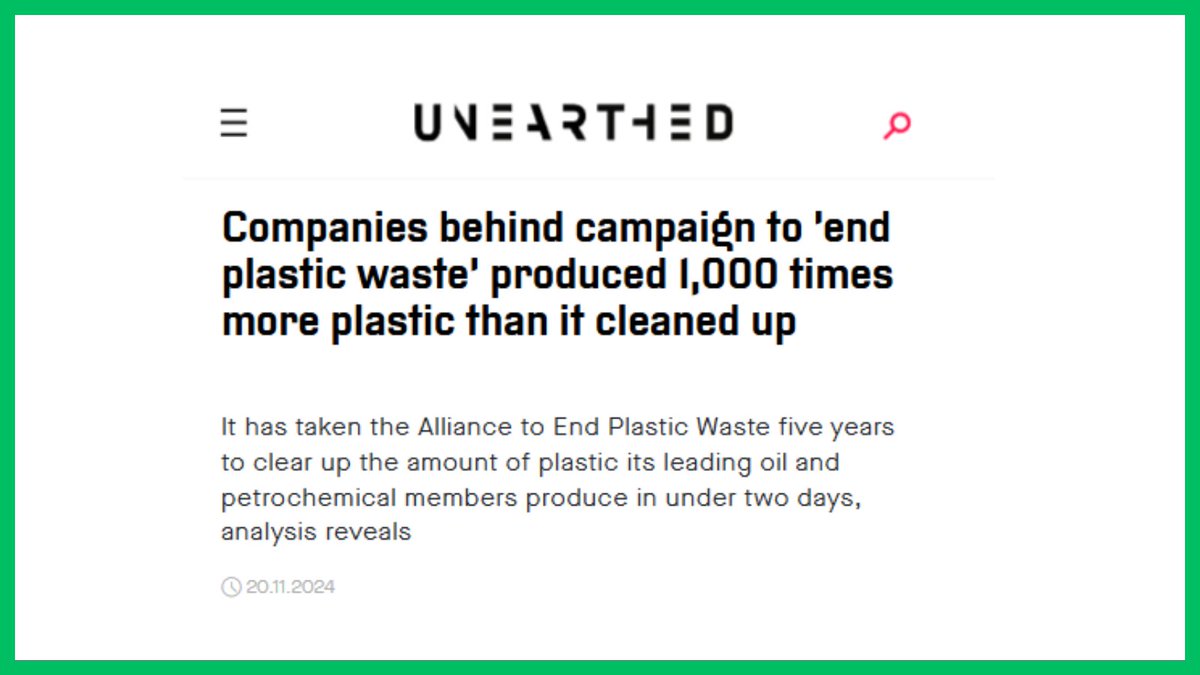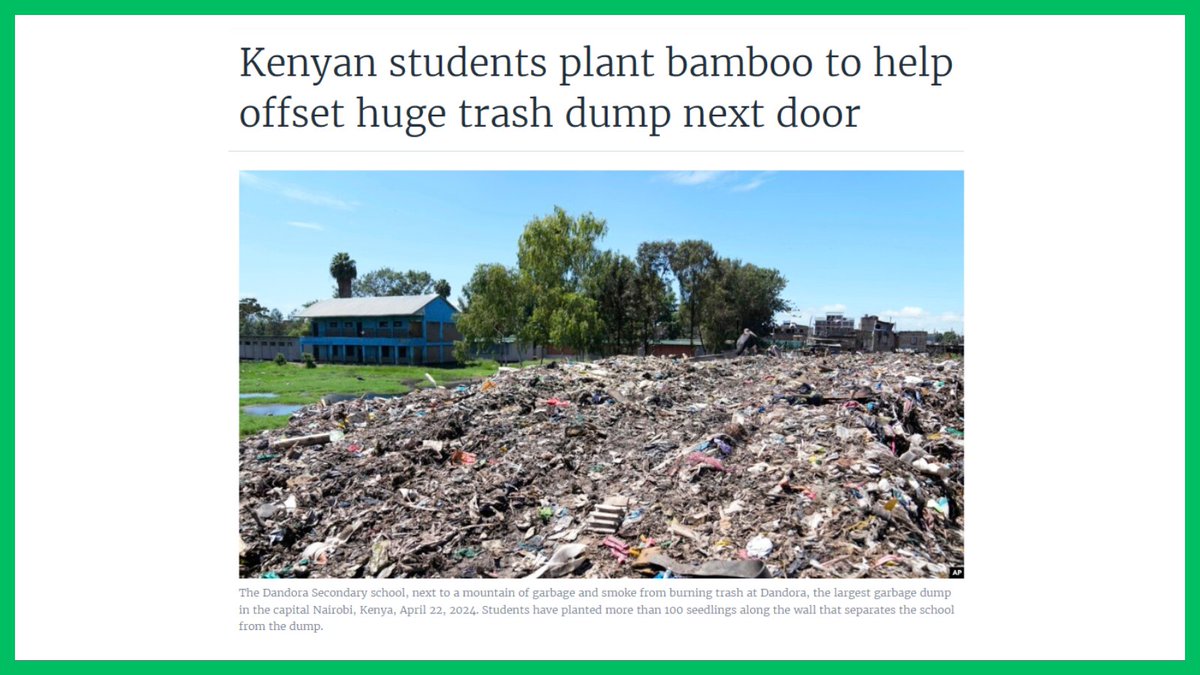
EcoCreds
@EcoCreds
Open RWA Marketplace for tokenized environmental credits | 🤝 Uniting individuals, brands, and WMOs for a cleaner planet 🌎
Global plastic management is broken. EcoCreds fixes it with blockchain-powered transparency and traceability. We're an open RWA marketplace for tokenized environmental credits for sustainability tracking. How we make plastic offsetting transparent, fair, & accessible to all 🧵

Plastic-free July is great. Plastic-free systems are better. EcoCreds helps brands fund verified plastic recovery projects with real proof, verifiability, not promises.
Not All Plastics Are Equal! Here’s what’s easiest to recycle (in order): ✅ PET bottles (water, soda) ✅ HDPE containers (shampoo, detergent) ⚠️ PP (yogurt cups, bottle caps) ⛔️ PVC, polystyrene, multilayer packs Know the difference. Rinse it. Sort it.
You check food labels. But what about the container it comes in? → BPA from can linings → PVC from cling wrap → Styrene from foam trays → Microplastics in tea bags What you eat out of matters just as much as what you eat.
Think your product’s sustainable because the label says “100% recyclable”? Check again. Is it actually being recycled, or just possible to recycle? There’s a difference. Proof > promises.
Waste workers are environmental defenders. But they don’t get headlines. They barely get wages. EcoCreds is here to change that by paying people who clean up plastic, not just talk about it.
Remember – “We use recycled plastic” is not the same as “We recover what we produce.” One reduces guilt. But the other needs accountability.
Pollution is visible. Responsibility is invisible. That’s the gap EcoCreds exists to close with real proof, verified recovery, and traceable impact.
Reminder: Plastic doesn’t break down. It breaks apart into microplastics. It is now in our lungs, oceans, crops, and blood.
You recycle. But your city doesn’t have the infrastructure to process it. So it ends up in a landfill anyway, or burned near someone else's home. That’s not your failure. It’s the system’s.
You can’t manage what you don’t measure. EcoCreds is building the infrastructure to track, verify, and reward plastic recovery. Because real change needs a paper trail.
The most vulnerable communities aren’t producing the most plastic. But they’re the ones living next to burn sites and landfills. This isn’t a pollution solution — it’s exploitation of the poor.
We hear a lot about plastic bans. But bans without infrastructure just shift the problem around. Recovery without proof = PR. Recovery with EcoCreds = verified action.
Fast fashion isn’t cheap. It just shifts the cost to someone else’s landfill. Most garments today are made from plastic-based synthetics. Worn a few times. Dumped and polluting forever.

Plastic pollution is not just environmental. It’s economic, political, and structural as well. It’s who pays. Who profits. And who gets left with the mess.
Every plastic “offset” without proof is just PR. Every vague “we recycle” claim is just compliance theater. Without transparency, sustainability is a slogan.

Some of the dirtiest landfills in the world sit next to schools and homes. Our future leaders are growing up next to mountains of trash.

The problem isn’t that plastic exists. The problem is that no one’s responsible for how it’s collected, tracked, or recycled. @EcoCreds changes that by tying waste recovery to verified proof and real compensation.
Bitter truth: Plastic isn’t a consumer choice. It’s a design default. It’s built into everything – grocery wraps, shampoo bottles, food containers – with no exit strategy. If you blame people for using plastic, then it is like blaming commuters for traffic.
Greenwashing isn’t always a lie. Sometimes it’s just… convenient math. “We recycle 80% of our plastic waste!” → by offloading it to a country with no waste tracking.
Tourism brings in dollars. But it also brings in disposables. Plastic bottles, wrappers, hotel kits — washed into rivers, dumped on beaches, burned in hill towns. That’s the real cost to the environment.